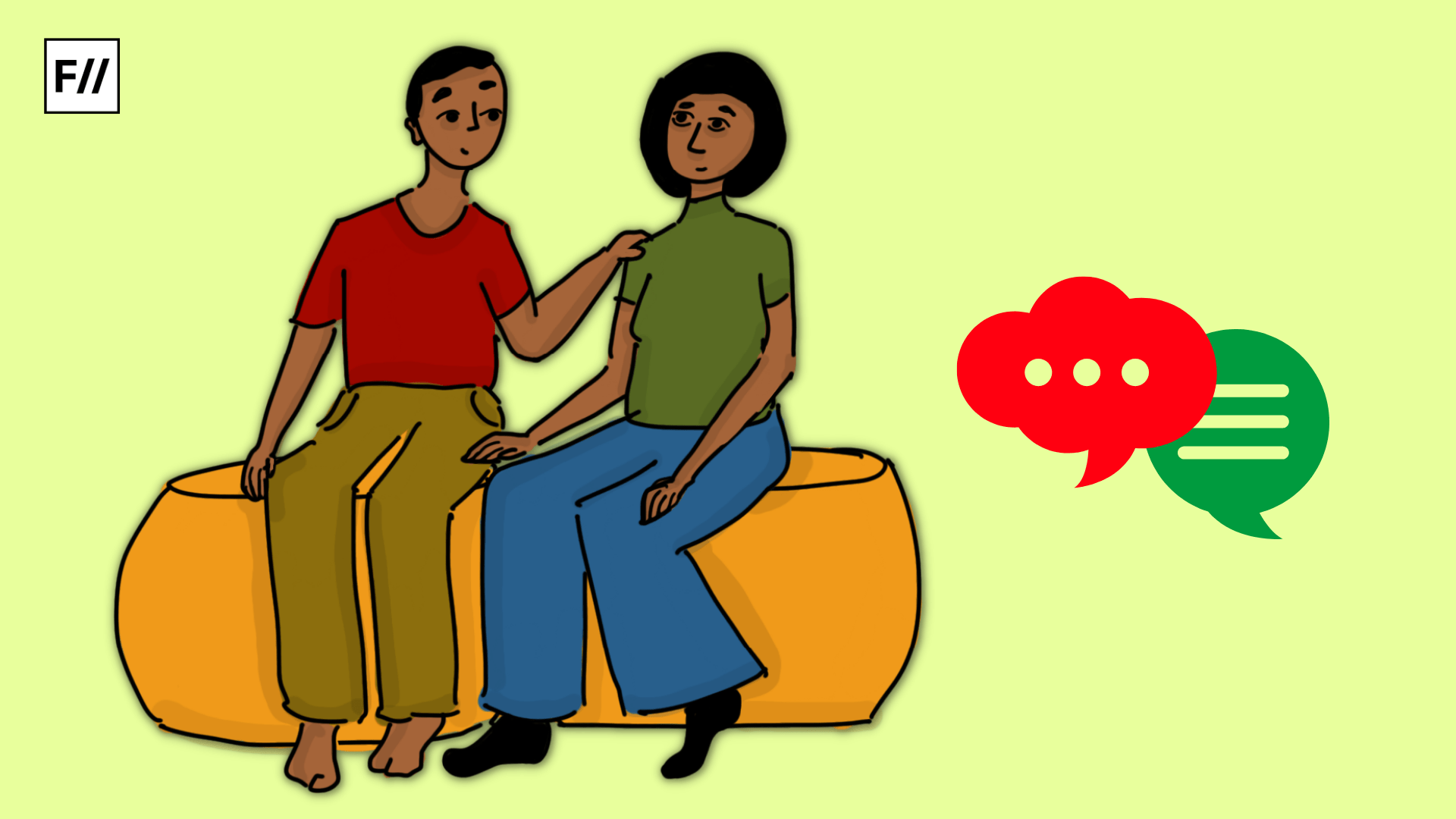The concept and the practice of abortion is a topic which is widely discussed and debated upon in various parts of the world. Many people have very strong opinions and feelings about this subject. Since time immemorial, patriarchal households which stress upon the need to have a child are vehemently against the practice of abortion. Hence, women are not only told about the importance of being a mother, they are also brainwashed to believe that having an abortion is a sin. However, propagation of such stigma-inducing ideology comes at a very heavy price. Not only are women enforced with the responsibility of motherhood but there is a genuine lack of awareness in society regarding this safe medical procedure.
For us to fully understand the many myths and misconceptions around abortion. We first need to understand the abortion laws in India. The Medical Termination of Pregnancy (MTP) Act, 1971 is the law governing termination of pregnancies in India. According to the recent amendment to the Act which has been operative from September 2021, women can now terminate the pregnancy up to 24 weeks. This gestation limit was raised from 20 weeks, as was mentioned in the original Act. However, for a woman to terminate the pregnancy at this stage, she must gain the approval of two registered doctors. Moreover, the amendment mentions categories of women who can avail this benefit like rape survivors, incest survivors, pregnant teenagers, women pregnant due to contraceptive failure, etc. Thus, though the amendment to the MTP Act still doesn’t give women the full right to abort, it is a step ahead in the right direction.
Due to the stigma attached around abortions, there have been many cases where women were denied the procedure on ethical or moral grounds. There have also been times when women are scared to approach doctors and clinics as they believe they will be judged and shamed for their choice. Thus, the stigma attached around abortion and the lack of information makes countless women resort to methods which are harmful and unsafe for them.
According to a report in Scroll.in, more than 56% abortions in India are unsafe and 10 Indian women die daily due to unsafe abortions. In 2015, Lancet Global Health Facilities came out with a report which stated that an estimated 15.6 million abortions took place in India, out of which 11.5 million occurred outside of health facilities. The report also indicated that most primary and community healthcare centres in rural areas do not provide abortion services.
Thus, in rural India, the matter is quite grave. According to the 2019-20 Rural Health Statistics Report of the Ministry of Health and Family Welfare, there is a 70% shortage in the number of gynaecologists in villages. Because of this, it is not only the societal compulsions which deter a woman from seeking proper healthcare, there is a genuine lack of doctors in many parts of the country.
Self-managed Abortions
Due to the lack of doctors and accessibility to healthcare clinics, self-managed abortions or Medical Abortion is a method which can be opted by individuals who wish to terminate their pregnancy without going through an invasive procedure. According to WHO, Medical Abortion involves a combination of mifepristone and misoprostol or a misoprostol-only regimen. In accordance with howtouseabortionpill.org, the abortion pills are safe to use up to 13 weeks. If you’re reading this from India, the law permits abortion pill usage up to 12 weeks of pregnancy. Medical abortion has been approved by the Drug Controller General of India in 2002.
As per How To Use an Abortion Pill, the abortion pills relaxes the cervix and causes it to contract which allows it to push out the pregnancy. Here are the guidelines on how to use an abortion pill:
- One is required to take 12 tablets of misoprostol – 200 micrograms each.
- Take four of the pills and place them in your cheeks or under the tongue and hold them for 30 minutes
- After 30 minutes have gone by, a person swallows the remaining pills (if any) and waits for three hours
- After three hours have passed, they once again take four more pills, place them in their cheeks or under their tongue and wait 30 minutes.
- After the 30 minutes have elapsed, the person swallows any remaining pills and waits three hours.
- The final four pills are then placed in the cheek or under the tongue. They are held for 30 minutes, and the remaining pills are swallowed.
Individuals who go through this process might experience discomfort, cramping, nausea and diarrhoea. It is important to remember that complications, though they are rare, can occur like high fever (102 degrees Fahrenheit), heavy bleeding (soaking more than 2 menstrual pads), severe pain and vaginal discharge.
India and Medical Abortion (MA) Drugs
Since not all women have access to healthcare facilities which provide abortion services, it is of paramount importance that local chemists stock up on MA pills, so women can freely exercise their choice without putting themselves in harm’s way. According to a report in the Indian Express, a study conducted between January and March 2020 by Foundation for Reproductive Health Services India (FRHSI), among 1,500 retail chemists in six states came up with the conclusion that there is a massive shortage of MA drugs in the five states that they surveyed. According to the chemists, the main reason for not stocking up on these medicines was because they wanted to avoid legal issues. They also said that there was an overregulation of MA drugs. However, in 2019 MA drugs were included in the core list of essential medicines which meant those who needed this medicine could take it without medical supervision.
But the study also brought forth the bias and stigma which is ingrained in our society. Around 10% chemists said they would not sell the medicine to an unmarried woman and would not entertain a woman who is below the age of 18. The inaccessibility to MA drugs worsened during the months of the pandemic. IPAS Development Foundation reported that in first three months of the pandemic 18.5 lakh Indian women could not access abortion services.
Importance of Medical Abortion Drugs
It is clear that stigma associated with abortion and the lack of awareness in our country contributes to a decline in women’s reproductive health. The coronavirus pandemic was a watershed moment in terms of healthcare and the problems faced by many due to inaccessibility of health infrastructure were finally brought to the limelight. Thus, in terms of reproductive healthcare for women, it is of paramount importance to bring Medical Abortion (MA) drugs to local chemists. These drugs will help many women as they will have access to safe abortions in a private and respectful manner.
But for us to achieve this we first need to raise awareness and let go of the stigma we have attached with abortion. Women should not be apprehensive about buying medicines which will improve their quality of life. They should not be shamed for choosing to abort their pregnancy. By putting the mandate of motherhood on their shoulders we are depriving them of proper healthcare and their right to choose what’s best for their future.
This piece is written in partnership with HowToUse Abortion Pill, who works to share facts and resources about abortion pills – what to consider beforehand, where to acquire quality abortion pills, how to use them safely, what to expect, and when to seek medical help if necessary. They equip women with the information they need to safely navigate abortion on their own terms. Ally, the safe abortion assistant from HowToUse, is available 24/7 to support you through abortions with pills. You can speak to Ally in Hindi or English, and support is available through a free WhatsApp number +1 (833) 221-2559 OR directly on http://www.howtouseabortionpill.org/.
Editor’s Note: This article has been updated to redress factual discrepancies after consultation with experts and in accordance with the amendment to the MTP Act
Featured Image Credit: IPAS
About the author(s)
Vanshika Sawhney is a journalism student who is a bit obsessed with political philosophy. She dreams of having a house in the hills with lots of books and coffee.




